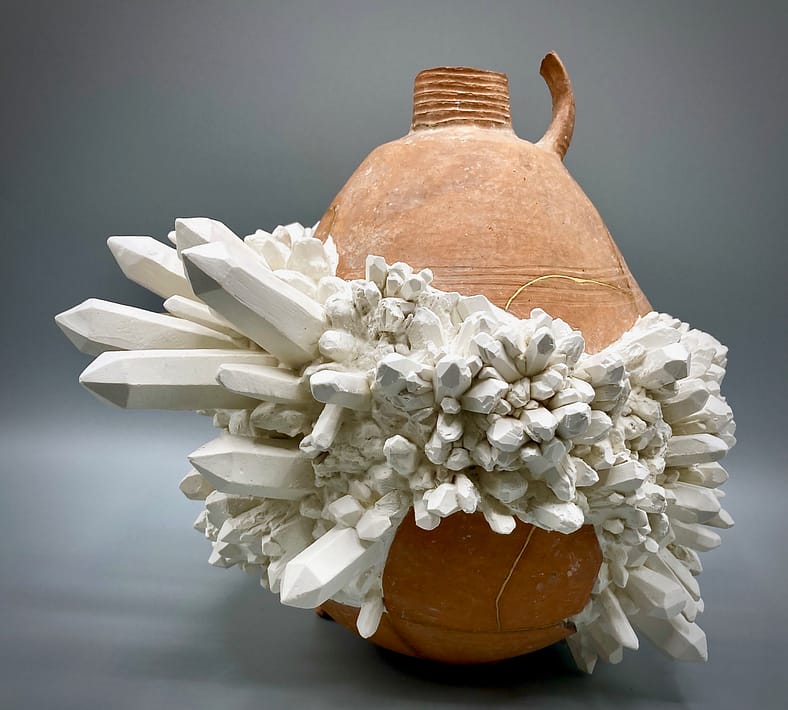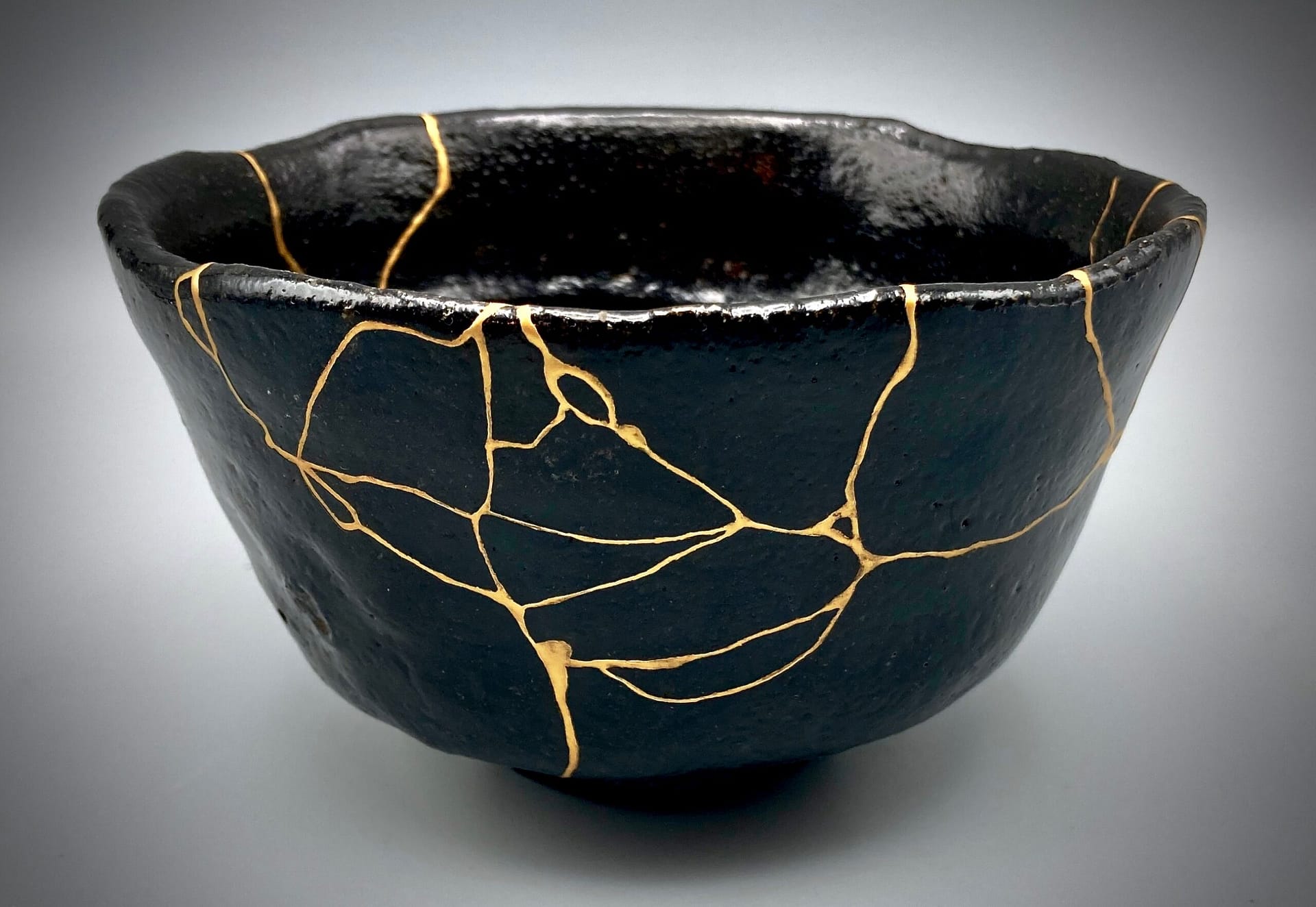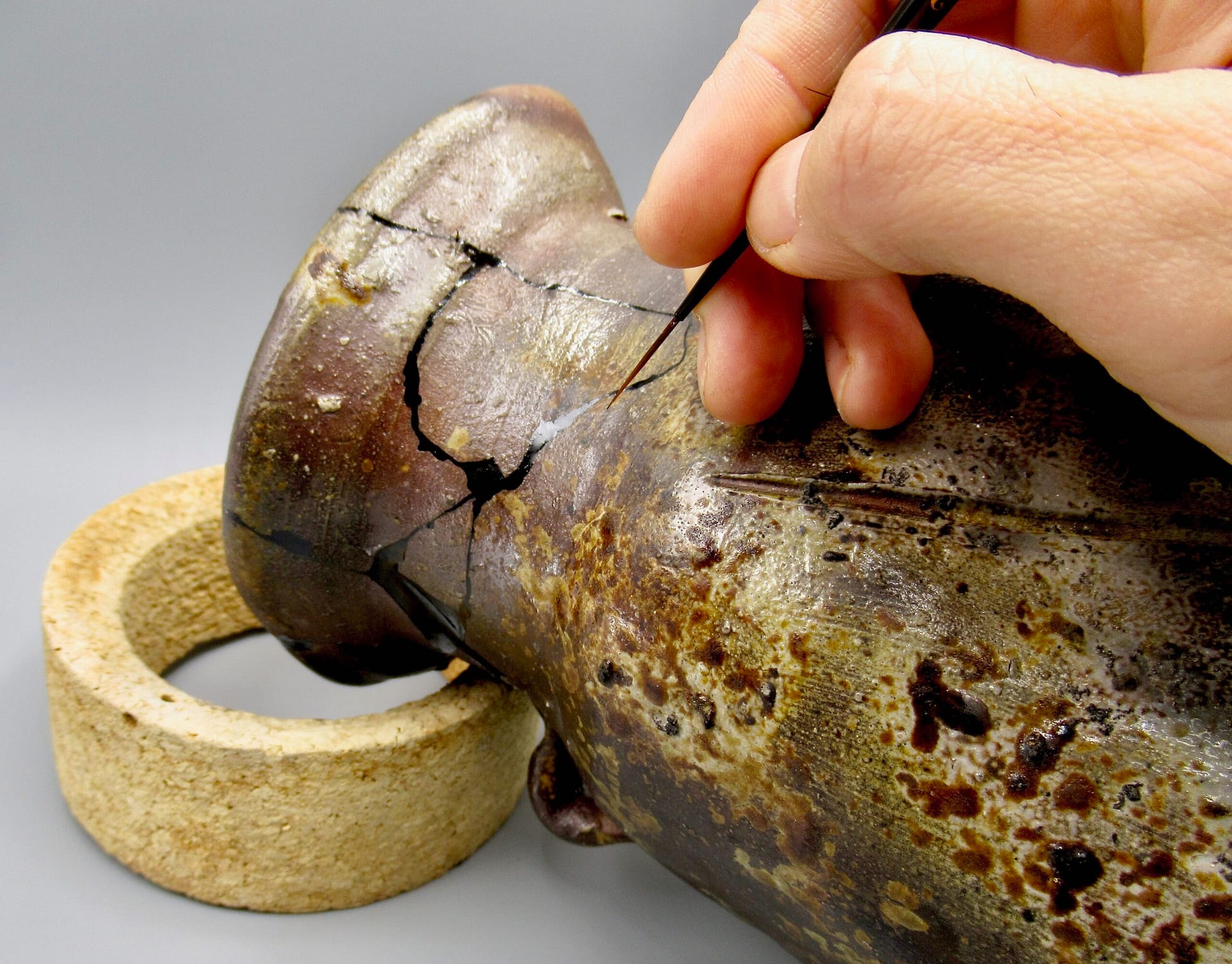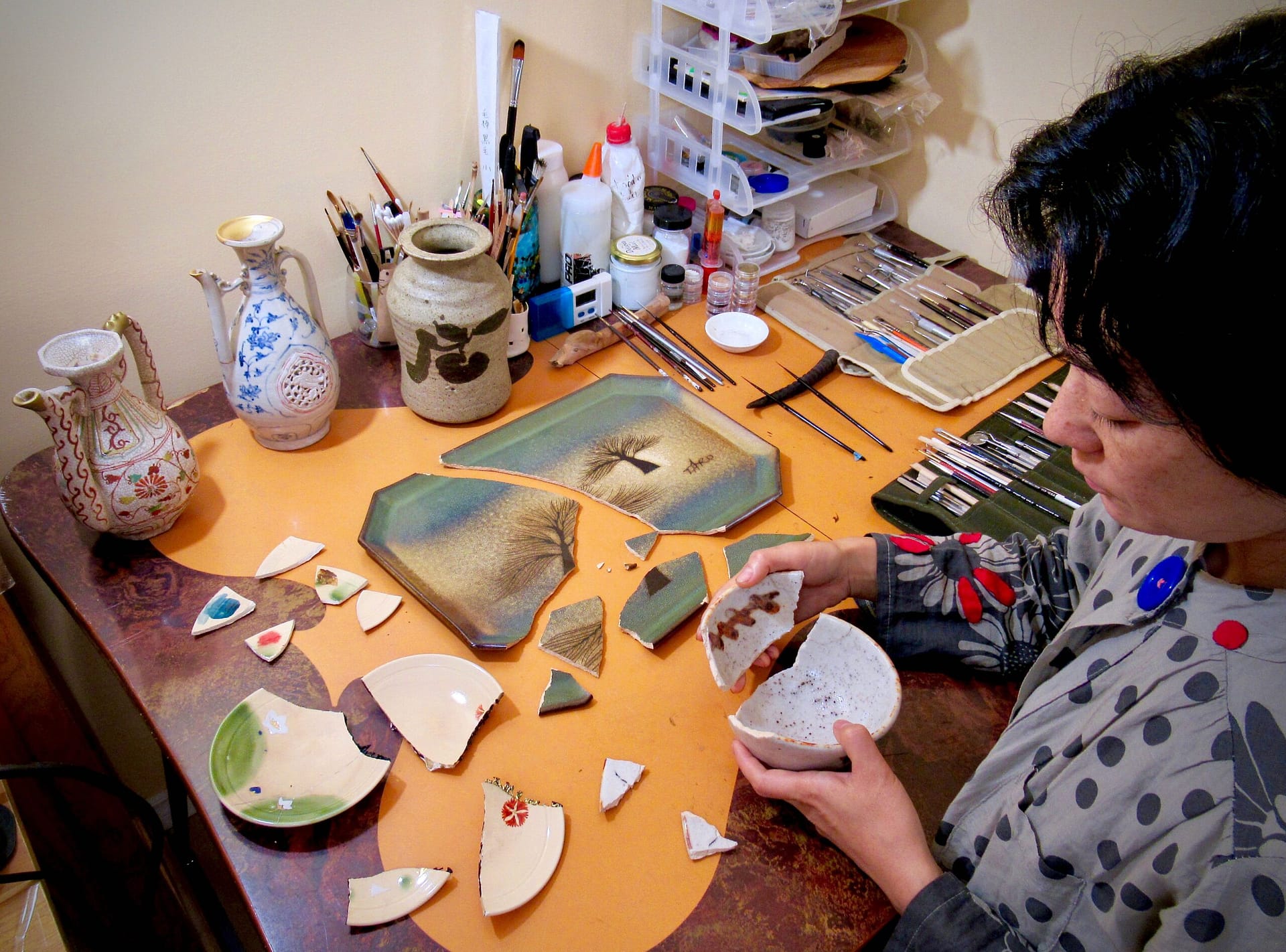We are thrilled to offer an extension of Naoko Fukumaru’s kintsugi artwork in the Calvin and Mayho Tanabe Gallery through March 15th. The main exhibition is no longer on display in the Pavilion Gallery.

Portland Japanese Garden is thrilled to feature Kintsugi: The Restorative Art of Naoko Fukumaru in our Pavilion and Calvin and Mayho Tanabe Galleries this fall. Kintsugi is an ancient method of mending damaged ceramics using urushi (natural lacquer) dusted with powdered gold. This type of mending highlights the beauty of imperfections, rather than trying to hide them. This timely exhibition will explore universally resonant themes of healing through the artwork of kintsugi artist and master conservator Naoko Fukumaru.

From Naoko Fukumaru
“I visited Portland Japanese Garden in November 2022. I was drawn in by each element of the landscape, which brought up nostalgic childhood memories of my grandparents taking me to various Japanese gardens in Kyoto. Moss carpets created spaces of deep tranquility and transcendent beauty; water flowing through the rocks of the creek symbolized the flow of life; and skillfully pruned pine trees were stylized structures that lent each of the specimens its own personality. I was fascinated by the authenticity and magic of Portland Japanese Garden. At the end of my visit, I realized that care and love are the main ingredients of this place. It was unmistakable that staff, volunteers, visitors, and all who were involved in this Garden, were giving so much love, care, passion, and pride here. This truly resonates with my kintsugi artwork. Kintsugi is a 500-year-old art form of mending damaged ceramics with urushi, natural lacquer, dusted with powdered gold. This method of mending is seen as enhancing the beauty and value of objects by celebrating their imperfection and impermanence. This approach is the opposite of traditional Western ceramic restoration, in which the damage to the work is sought to be hidden, which I studied and practiced for 25 years.”

What Guests Are Saying

We’ve been very fortunate to have received some kind words from our guests who have visited the exhibition. Here are some of the highlights:
“This exhibit has greatly helped me process the recent death of my baby girl, who was stillborn on her due date. I have been struggling with feelings of grief, worthlessness, and feeling like a bad mother. This exhibit brought tears to my eyes and helped me reach a higher level of self-acceptance and peace. Thank you infinitely!”
“I was entranced by the additions the artist made to some of the mended articles. The kintsugi mended items from other cultures put the exhibit way over the top! They greatly expanded the message of the global need and possibility to create wholeness and acceptance of difference, and of what can be only partially mended. Simply the best garden experience ever.”
“This exhibit and the explanation about kintsugi has the positive effect of years of therapy! :)”
“I came broken on a ride on the shuttle – fractured tibia, knee fractures, and recent pulmonary valve replacement – so this message spoke to me reverently!”
“Staff member welcomed me as I entered, oriented me to the gallery, educated me on Kintsugi and met me as I moved through the exhibit, adding to my enjoyment and understanding. As a result, my life-perspective was enhanced. And I could relate my Zen Buddhist practice to the process of Kintsugi. With deep gratitude for Naoko Fukumaru, many blessings and bows.”
“This was amazing. People need to understand how to apply kintsugi into their lives.”

Virtual Tour
Sponsors



